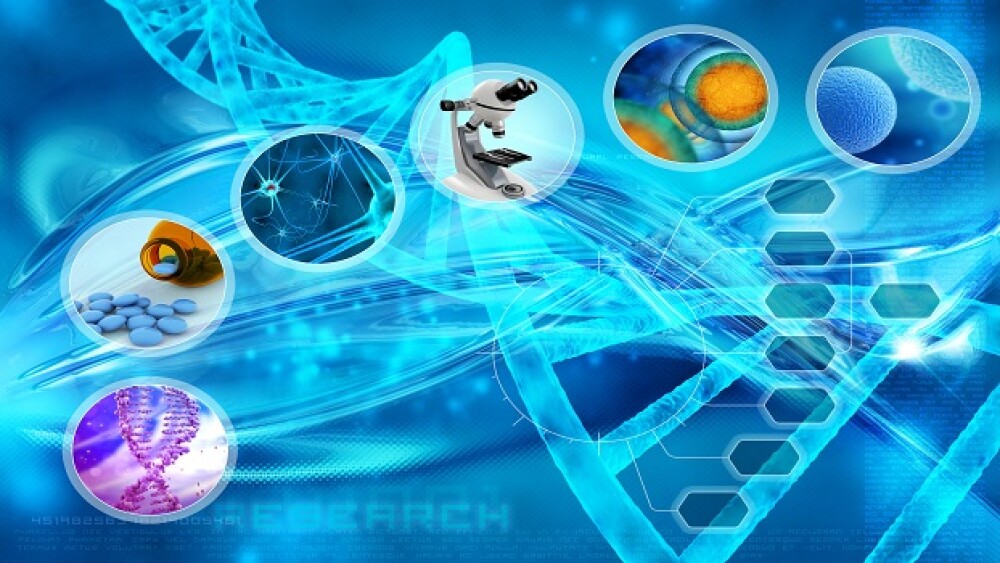There are plenty of great scientific research stories out this week. Here’s a look at just a few of them.
There are plenty of great scientific research stories out this week. Here’s a look at just a few of them.
Yale Researchers Identify Possible Treatment Strategy for Rare Inherited Cancers
Scientists with the Yale Cancer Center (YCC) published research in Nature Genetics identifying possible treatment approaches for two rare cancers, Hereditary Leiomyomatosis and Renal Cell Cancer (HLRCC) and Succinate Dehydrogenase-related Hereditary Paraganglioma and Pheochromocytoma (SDH PGL/PCC). Both cancers are the result of abnormally high metabolite levels, and are caused by inherited gene mutations in the genes that code for enzymes that process the metabolites. They found that high levels of metabolites degrade homologous recombination, which is a way cells repair DNA damage.
“Our finding identifies an Achilles heel for these tumors, which potentially can be treated using a new type of medication, called a PARP inhibitor,” said Peter Glazer, chair of the Department of Therapeutic Radiology at YCC and co-corresponding author of the study, in a statement. They are now planning a clinical trial to evaluate PARP inhibitors in patients with the two diseases.
Brain “Pleasure” Chemicals Might Fight Cancer
Researchers with Technion–Israel Institute of Technology, Carmel Medical Center in Haifa, Israel, Rambam Health Campus in Haifa, and the EMMS Hospital in Nazareth, Israel, published research in the journal Nature Communications that identified anti-tumor activities related to the brain’s reward system. Studying the reward circuit in mice, they found that the chemical signals reach the immune system, which stimulates a subset of bone marrow cells that can inhibit the growth of cancer cells.
It suggests that positive thoughts and emotions could change neurons in the brain. “And neuronal activity is something we can manipulate,” said Asya Rolls of Technion-Israel Institute, co-senior author of the study, in a statement.
In mice implanted with cancer cells, two weeks of daily reward circuit stimulation resulted in the tumors decreasing by 40 to 50 percent than those in the control mice. They tracked it to a specific group of immune cells called myeloid-derived suppressor cells (MDSCs).
Infused Mitochondria Might Restore Heart Damage
Sitaram Emani, a pediatric surgeon at Boston Children’s Hospital, has conducted procedures where newborns who had heart damage during surgery were injected with mitochondria. Eight of 11 babies that have had the experimental procedure had improved cardiac muscle. This compared to 65 percent of babies with similar damage who didn’t receive the treatment and died.
The mitochondrial transplants were derived from the patients’ own healthy cells in other parts of their bodies. It was first attempted in 2015. Using the procedure on adults is being planned.
Teen Digital Media Use Linked to ADHD
It should come as no surprise that high use of digital media might be linked to attention issues—in everyone. Researchers with the University of Southern California Keck School of Medicine and the University of California, San Diego, and UCLA published research in the Journal of the American Medical Association linking digital media use with ADHD in adolescents.
They looked at 2,587 students in 10 high schools across Los Angeles County, California. They had no significant ADHD symptoms at the beginning of the study, and were 15 to 16 years old. Over a two-year period, the students in the study completed a form that measured ADHD symptoms, which included nine inattention symptoms and nine hyperactivity-impulsivity symptoms. At the start, they also filled out surveys on how often they participated in 14 digital activities, including social networking, texting, digital video games, online shopping, video chatting, reading online content or streaming videos or music.
The study found that the more high-frequency participation in digital media, the higher the symptoms of ADHD symptoms across all the follow-ups. Adam Leventhal, a licensed clinical psychologist and professor of preventive medicine at the USC Keck School of Medicine and lead author of the study, told CNN, “So one of the things we noticed in the study was that the association between digital media and prevalence of ADHD symptoms was persistent across the entire follow-up period.”
Study: Omega 3 Supplements Have Little or No Heart Health Benefit
A Cochrane systematic review, published in the Cochrane Library, combined the data from 79 randomized trials involving 112,059 people. All the studies looked at the effects of taking additional omega 3 fat, compared to usual or lower omega 3, on diseases of the heart and circulation. Twenty-five of the studies were dubbed as “highly trustworthy” because of their design and study conduct. The study found little or no benefit from increasing consumption of long-chain omega 3 on the health effects the studies were evaluating, and little or no effect on the risk of death from any cause. In people who increased their omega 3 fat intake, the risk of death from any cause was 8.8 percent compared to 9 percent in the control groups.
On the other hand, taking omega 3 fats “probably” reduced some blood fats, triglycerides and HDL cholesterol. Reducing triglycerides is linked to improved heart health, but reducing HDL is linked to worse heart health outcomes.
Lee Hooper, lead author, from the University of East Anglia, UK, said in a statement, “We can be confident in the findings of this review which go against the popular belief that long-chain omega 3 supplements protect the heart. This large systematic review included information from many thousands of people over long periods. Despite all this information, we don’t see protective effects.”





